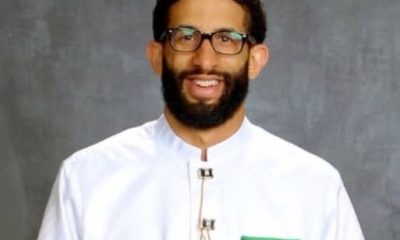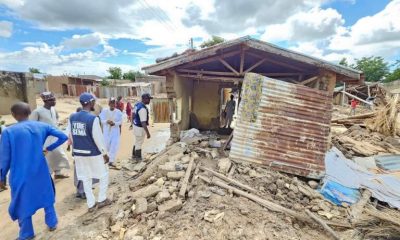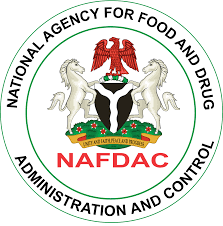OPINION
The Lessons of Okuama Tragedy

By Michael Owhoko
Has Nigeria learnt any lessons from the Okuama massacre? Will the incident repeat itself or offer profound lessons against a future experience? In the journey of life, no individual or nation or country is immune from occurrences thrown up by circumstance, which may be pleasant or painful.
Lessons from such experiences are deployed to prevent possible future reoccurrence, failing which the same catastrophe would repeat itself.In context, the gruesome murder of army officers at Okuama in Ughelli South Local Government Area of Delta State, which transcends ethnic emotions and was accompanied by wide condemnations, is a confirmation that Nigeria has not, and does not learn from lessons, otherwise the calamity would have been avoided.
The incident was not the first of its type. It had happened previously at Odi, Bayelsa State; Zaki Biam, Benue State; and Gbaramatu, Delta State, yet it appeared that neither the Federal Government nor the Nigerian Army learnt any lessons from the earlier occurrences. This is evident from the Okuama saga, a proof of the country’s insensitivity to bloodshed and exposition of poverty in the policy making process.
This notwithstanding, the Okuama calamity has again thrown up another opportunity for lessons to be learnt. If Nigeria fails again, this time around, to learn from these happenings, then the country risks further carnage, which may possibly take a more complex form, with unmanageable and unpredictable consequences. It may be too costly for the country’s fledgling socio-economic balance and stability.
Therefore, the lessons are crucial and should be identified by government, to be harnessed as feedback for proactive purposes, to forestall future recurrence. It is a tragedy for any country with a relapsing experience, not to have a codified strategy encapsulated in a template to resolve related matters. In specific terms, what then are the lessons and takeaways from the Okuama disaster?
Lesson One: To have allowed a land dispute over fishing rights between Okuama and neighbouring Okoloba communities in Bomadi Local Government Area, Delta State, to escalate means there were no proactive measures and prompt concerted interventions by the Nigeria Police Force and Delta State Government, in response to petitions written by the Okuama community.
The community, through its lawyers, I. Ejedegba and Co., had written a petition to the Commissioner of Police in Asaba, Delta State, which was acknowledged on 31 January, while that written by the community’s leaders to the Delta State Governor was received on 2 February. This was over one month before the gruesome murder of the military officers on 14 March.
Since the Police is the first line of contact and statutorily responsible for civil security matters, they should have waded in upon receipt of the petition, to nip the crisis in the bud, aside the previous joint meetings held among the communities, the Police and the Delta State Government that yielded no solution. Under this development, the Delta State Governor should have been advised to wield the big stick by acquiring the land in contention for public interest, to end the crisis.
Lesson Two: Inviting the Army for a mediatory and peace mission to Okuama for the resolution of a land dispute between two communities that were not at war, was an error in judgement. The dispute was civil in nature, and it was only when the efforts by the Police and the Delta State Governor had failed, and there was evidence of likely escalation into a dangerous dimension beyond the capacity of the Police, that would have warranted the intervention of the Nigerian Army. It is not the responsibility of the Army to broker peace in a civil matter.
Lesson Three: Central to the killing of the military personnel in Okuama is presumably oil. Oil appeared to be the underpinning motive behind the horrendous and senseless killings. Mere land dispute between two communities could not have led to such a mindless massacre. Soldiers are deployed to the Niger Delta region to protect oil facilities, and in the course of this duty, they might have been marked as “enemy” by those profiteering from illegal oil deals.
Those involved in crude oil theft and other illegal activities, including the processing of locally refined products, might see the Army as an obstacle to their business interests. The military high command should have known this, and prepared the soldiers for any possible eventuality and collision with entrenched oil thieves.
The circumstances of their deaths showed that the military men were taken unawares. It was likely that crude oil thieves and other vested interests might have planned and taken advantage of the soldiers’ peaceful disposition to unleash mayhem on them in such a horrific and despicable manner.
Lesson Four: The mass destruction of Okuama by the Army in response to the death of the soldiers, without singling out the culprits, was unhelpful, as innocent children, mothers, the elderly, the sick and even pregnant women, were either killed, rendered homeless or died while trying to escape.
To bring pain on an entire community over the action of a few criminals, is indefensible. Reprisal attacks and collective punishments are incompatible with international law.
It should be recalled that after the destruction of Odi by the Army, the community resorted to litigation and got a favourable judgement, leading to the payment of a N15 billion out-of-court settlement as compensation. Justice Lambi Akanbi of the Federal High Court had condemned the government for a “brazen violation of the fundamental human rights of the victims to movement, life and to own property and live peacefully in their ancestral home.”
Since the Okuama experience is reminiscent of the destruction in Odi, it is likely Okuama may seek redress in the law court for compensation over the reprisal destruction of lives and properties.
Lesson Five: As the President and Commander-in-Chief of the Armed Forces of Nigeria, Bola Tinubu’s order to the Army was too hasty and reactionary, without taking into consideration innocent lives in Okuama that were caught up in the web. Granting “full authority” to the military to bring anybody found to have been responsible for the attack to justice was an obvious blanket licence for the military to invade Okuama.
Instead, the President should have ordered the security agencies and the Police to specifically intervene, identify and arrest the criminal elements in the community, while instituting an independent high-powered panel of enquiry to unravel the causes of the mayhem. A future restraint on the part of the President is imperative to douse tension and minimise further collateral damage.
Lesson Six: The Army’s decision to lock down and lay siege to Okuama without granting access to the Delta State Governor, the Police, humanitarian agencies, and even the press to assess the situation on ground, has given rise to speculations about the plight of the members of the community, particularly the innocent, helpless and indigent persons. This is unhelpful to the image of the Army.
By not allowing access, the Army has unwittingly opened its operations to speculations. For example, it was alleged that the Army killed over 5O persons in Okuama, with other survivors hiding in the bush, including old women, children, the elderly ones and even the sick, with no food to eat or water to drink. This is a gross violation of their fundamental human rights.
To avoid being put on the spotlight, it is imperative for the military to grant access into the community to enable humanitarian agencies and volunteer groups extend help and assistance to the innocent ones, to prevent further fatalities. This will also serve the interest of the Army’s reputation.
Lesson Seven: After the destruction of Odi, initial public sympathy for the military waned. The same is replicating itself in Okuama over the conduct of the Army. The Army, like other Federal Government agencies, is not a supreme institution that is above the Constitution and the Nigerian State, neither is civilian population subject to military laws.
Indeed, the Army is subject to civil authority under a democracy. Therefore, it must change its current tactics at Okuama, where it has refused access to the community, assumed being the sole information provider on goings-on, and subjected civilians to investigation, arrest and detention.
It is hoped that these lessons will serve as reference and guide for the state governments, the Police, the Army and the federal government in the handling of related crises to avert future disasters.
Owhoko, a Lagos-based public policy analyst, author, and journalist, can be reached at www.mikeowhoko.com, and followed on X (formerly Twitter) @michaelowhoko.
OPINION
Obaseki’s Failure and Urgent Need for Good Governance in Edo State
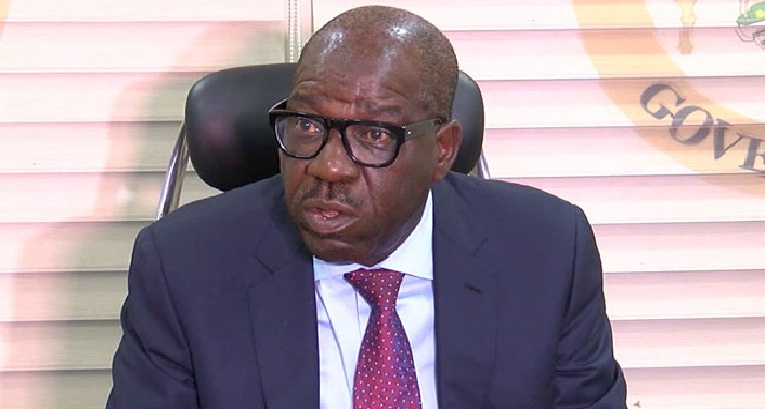
By Augustine Osayande
As the September 21 gubernatorial election approaches, I feel compelled to address the urgent issue of governance in Edo State. My concerns have been intensified by recent news: “Benin Group Issues Ultimatum to Obaseki, Demands Apology to Oba of Benin” and “200 Members of Governor Obaseki’s Family Defect to APC, Endorse Okpebholo for Governor.
” These reports highlight the growing discontent with Governor Godwin Obaseki’s administration.While poor governance is not unique to Edo State, Governor Godwin Obaseki’s administration has been particularly disappointing. His tenure has been characterized by unfulfilled promises and significant lapses in leadership, positioning him as a notable example of ineffective governance.
Compared to his peers, his administration’s failures are especially stark, making him one of the most prominent figures among underperforming governors.It is not surprising that the most recent damning verdict showing the woeful performance of Governor Godwin Obaseki for the past eight years is coming from his immediate family. According to the news report, the Agho Obaseki’s family in Edo State announced their decision to abandon the Peoples Democratic Party (PDP) and throw their support behind the All-Progressives Congress (APC) candidate, Senator Monday Okpebholo, for the upcoming gubernatorial election.
Osaro Obaseki, a prominent figure within the Obaseki clan, revealed the reasons behind their dramatic decampment. “We have stood by our brother, Governor Godwin Obaseki, since 2016. However, his administration has failed to deliver on the promises made to the people of Edo, and we can no longer support him, especially when he intends to bring and foist his replica on us,” Osaro stated, expressing the family’s disillusionment with the current state of affairs in the state.
The Obaseki family, which numbers over 200 members, voiced their dissatisfaction with the perceived neglect of crucial infrastructure and the lack of respect shown to traditional institutions, including the Oba of Benin. “We believe that Senator Monday Okpebholo has the vision and commitment to turn things around for the better. His track record and dedication to the people of Edo have convinced us that he is the right leader to guide our state forward,” Osaro Obaseki added.
Again, just before his family verdict, concerned People of Benin Nation (CPBN) issued a seven-day ultimatum to Obaseki, demanding a public apology to the Oba of Benin, Omo N’Oba N’Edo Uku Akpolokpolo, Oba Ewuare II, for what the group described as “sacrilegious disrespect” to the Benin throne.
In a press statement issued on Tuesday by Prof. Amen Uhunmwangho, and co-signed by prominent figures, including Dr. Jacob Abusomwan, Barr. Osarenkhoe, Leftist Agho Omobude, Mr. Iyamu Osaro Culture, Comrade Eseosa Omoregbee, Chief Omuemu Etinosa, Chief Friday Omoragbon, and Rev. Osamuyimen Isibor, the group demanded that the apology be published in at least three national newspapers.
The CPBN, representing a wide, cross-section of Edo State residents, also outlined several other demands, including an immediate halt to the construction of a museum intended for repatriated Benin artefacts, which they asserted was being undertaken without the Oba’s consent.
They also called for the withdrawal of lawsuits allegedly filed by certain Enigie against the Oba, the reallocation of lands whose Certificates of Occupancy were revoked by the governor, and the return of communal land they claimed were illegally acquired by the state government.
The group is advocating the payment of salaries and allowances to 14 Edo State House of Assembly members who have been prevented from taking their seats for the past four years, in what they described as unconstitutional actions by the state government. The CPBN’s demands reflect a growing discontent with the governor’s actions, which the group believed had undermined the Benin Kingdom and its people.
In evaluating the numerous controversies surrounding Governor Godwin Obaseki, it is essential to start with his actions that contradict the very principles that facilitated his rise to the governorship of Edo State. Democracy, widely regarded as the most effective form of governance, derives its legitimacy from the people, with the legislature serving as its essential safeguard. The constitutionally enshrined principles of checks and balances require the three branches of government to function independently and harmoniously for the benefit of the populace.
Governor Obaseki, in a troubling display of disregard for democratic norms, obstructed the inauguration of 14 duly elected members of the Edo State House of Assembly in 2019. This act, which remains a documented breach of democratic process, significantly harmed the people of Benin, as 10 of the excluded members represented the Edo South Senatorial District, including the elected representative of the governor’s own Oredo East Constituency, Hon. Chris Okaeben. Consequently, the Benins were reduced to a minority in the House, with only four members. This undemocratic exclusion deprived millions of Edo citizens of representation for four years, during which governance in the state was marked by an unchecked and unbalanced consolidation of power by the governor.
This pattern of governance has continued, with two members of the Edo State House of Assembly—Hon. Emankhu Addeh and Hon. Ojeme Donald Okogbe—recently suspended from the House without due process, further depriving their constituencies of effective representation. Such acts of oppression, exclusion, and intimidation have marred Edo’s recent history.
Furthermore, Governor Obaseki has repeatedly undermined the progress of prominent Benin citizens by allegedly sponsoring protests against their appointments to significant positions, such as the nomination of His Excellency, Rt. Hon. Pius Odubu, and Chief Victor Ekhator for leadership roles within the Niger Delta Development Commission (NDDC) in 2019. This, along with other actions, reflects a pattern of hindering opportunities that could have brought substantial development to Edo State.
The abandonment and destruction of critical state infrastructure, such as the Benin storm water project and the Ekehuan road project, further highlight the administration’s failure to prioritize the welfare of Edo citizens. Governor Obaseki has also been accused of demolishing long-standing public institutions like the specialist hospital on Sapele Road and the Institute of Continuing Education, replacing them with private ventures.
In the lead-up to the 2020 gubernatorial election, the governor’s alleged indifference to assassination attempts on political opponents and his persistent conflicts with the Benin traditional institution, particularly his attempts to interfere with the repatriation of Benin artefacts, have further estranged him from the people he is supposed to serve.
The governor’s actions have also included the demolition of property in Oke-Oroma Community, despite a subsisting court order, and the allocation of vast forest reserves to private entities, often at the expense of local communities and without transparent benefits to the state.
Governor Obaseki’s administration has been marked by what many perceive as a series of high-handed actions against individuals and communities, including the revocation of land titles and the demolition of property belonging to prominent citizens, often on grounds seen as politically motivated.
In conclusion, the people of Edo State are urged to critically assess the character of those who seek to lead them, especially as the next gubernatorial election approaches. It is vital to resist choices that could lead to further hardship and regression for the state. The resilience of the Edo people and their commitment to democratic principles should guide their decisions in this crucial period.
Augustine Osayande, PhD contributed this piece from Abuja via austinelande@yahoo.com
OPINION
Joining Hands to Build a China-Nigeria Community with a Shared Future

By Yu Dunhai
On 10 August, I departed from Beijing and landed in Abuja, from a city near the western side of the Pacific, to a capital adjacent to the eastern side of the Atlantic, and started my journey as the 15th Chinese Ambassador to Nigeria, with a lofty mission and great excitement in my heart.
Upon arrival at the Nnamdi Azikiwe International Airport, I deeply felt the hospitality of the Nigerian people and their friendship with China, which boosted my confidence in my tenure in the coming years.There is much common ground between China and Nigeria, and between our two peoples. China is the second largest economy and one of the most populous countries in the world, while Nigeria is a major economy and the most populous country in Africa.
Both of our countries are blessed with vast lands, ancient histories, rich natural resources, multiple ethnic nationalities and splendid cultures. Both the Chinese and Nigerian people cherish peace and yearn for development. They are both hospitable people, and treat each other as brothers.Meanwhile, the 1st of October is China’s National Day and Nigeria’s Independence Day, respectively. Although separated by oceans, the two countries and two peoples are closely linked by these similarities. Therefore, since the establishment of diplomatic ties on 10 February, 1971, our relations have stood the test of changes in the international landscape and gone from strength to strength. Furthermore, over the years China-Nigeria relations have stood at the forefront of China-Africa relations.
In 2018, our two countries signed a Memorandum of Understanding for cooperation on the Belt and Road Initiative (BRI), and Nigeria joined the Belt and Road family. In October, 2023, Vice President Shettima attended the Third Belt and Road Forum for International Cooperation in China on behalf of President Tinubu, which was a complete success. In June this year, Foreign Minister Yusuf Tuggar visited China and held talks with HE Wang Yi, member of the Political Bureau of the Central Committee of the Communist Party of China and minister of Foreign Affairs.
The two foreign ministers co-chaired the first plenary session of the China-Nigeria Intergovernmental Committee, which further promoted the political mutual trust and mutually beneficial cooperation between our two countries.
Upon arrival in Abuja, I witnessed its modern international airport that was built by a Chinese enterprise. The airport is just one of the numerous flagship projects constructed by Chinese companies through China-Nigeria cooperation, which include the Lekki Deep Sea Port, the Abuja Metro Line, the Lagos Rail Mass Transit, the Zungeru Hydropower Plant, the National Data Centre in Kano, and the Lekki and Ogun industrial parks, etc. The projects stand as a testament to the fruitful results of China-Nigeria practical cooperation and the friendship between our two peoples.
Nigeria is China’s third largest trading partner in Africa, with bilateral trade amounting to $22.56 billion in 2023. The country is also China’s second largest export market and a major investment destination in Africa, and the number of projects contracted by China in Nigeria ranks first in Africa. Featuring enormous potential and a bright future, the practical cooperation between China and Nigeria serves as a role model of high quality Belt and Road Cooperation.
People-to-people friendship holds the key to state-to-state relations. After the COVID-19 pandemic, we have developed closer cultural exchanges. We have established cultural centres in each other’s capital and Chinese and Nigerian universities have co-founded two Confucius Institutes in Nigeria, and Nigerian people’s enthusiasm for learning the Chinese language keeps on growing.
The number of Nigerian students learning in China has reached its peak at more than 7,500, and a large number of Nigerian citizens are doing business in China. We have co-hosted with the Nigerian side a series of cultural events such as the “Happy Chinese New Year” Temple Fair, the Chinese Film Festival and the “Chinese Bridge”– the Chinese Proficiency Competition, which have all largely brought our hearts closer. I am expecting more Nigerian friends to pay visits to China and act as the envoys connecting China-Nigeria friendship.
China and Africa enjoy a long-standing friendship. In the 1960s and 1970s, despite its economic hardship, China built the world-renowned Tazara Railway for its African brothers. In 2013, President Xi Jinping put forward the principles of sincerity, real results, amity and good faith for China’s Africa policy. Over the past decades, China and its African friends have stood together in weal and woe in the face of changes in the international landscape and joined hands to meet challenges.
Taking into consideration African countries’ yearn for modernisation, President Xi Jinping proposed, in 2023, the Initiative on Supporting Africa’s Industrialisation, the Plan for China Supporting Africa’s Agricultural Modernisation, and the Plan for China-Africa Cooperation on Talent Development respectively, accelerating Africa’s integration and modernisation.
In September this year, the Summit of the Forum on China-Africa Cooperation (FOCAC) will be held in Beijing, during which Chinese and African leaders will jointly plan future China-Africa development, after the previous summit held six years ago. Currently we are actively preparing for President Tinubu’s state visit to China and his attendance of the Summit in September, along with our Nigerian colleagues.
I am confident that with our joint efforts, President Tinubu’s visit is certain to deepen our cooperation in such fields as industry, agriculture, infrastructure, financing, poverty reduction, technological innovation, digital development and the blue economy, upgrading and expanding the depth and width of China-Nigeria cooperation, and bringing more benefits to our two peoples. President Tinubu, as the chairman of the Economic Community of West African States (ECOWAS), will also discuss with Chinese and African leaders about China-Africa cooperation and development.
In July this year, the third plenary session of the 20th Communist Party of China Central Committee was successfully held, with the adoption of an important resolution which included more than 300 important reform measures. The measures are aimed at further deepening reform comprehensively and advancing Chinese modernisation. China strives for modernisation through a path of peaceful development.
The country will leverage the strengths of its enormous market and enhance the capacity to open up by expanding international cooperation. China’s development plays an important role for the stability and prosperity of a multi-polar world. We will also continue to support Nigeria’s social and economic development with concrete actions, and share our development benefits with the country.
When I passed by the majestic Zuma Rock, it reminded me of the Great Wall of China. Both of them represent the national character of tenacity possessed by our two peoples and symbolise our friendship. I look forward to meeting more Nigerian friends from government bodies, the National Assembly, the business community, the media, think-tanks, etc., visiting different states in Nigeria, and gaining more insights into its history, ethnic cultures and local customs.
With the support of my like-minded Nigerian friends, I will make my utmost efforts to contribute to the resilient relations between China and Nigeria, to the profound friendship between our two peoples, and to the building of a high-level China-Nigeria community with a shared future.Dunhai is the Ambassador of the Peoples’ Republic of China to Nigeria.
OPINION
The Olympics and Lessons for Nigeria
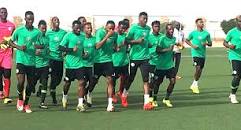
By Yahaya Etila
The commentaries on the just concluded 2024 Olympics are well in place given the quantum of resources expended by the Nigerian contingent. On the medals table, Nigeria sat comfortably at the bottom with no medal, marking it as one of the country’s worst Olympic outings in recent history.
However, as embarrassing as the outing was, there are lessons to learn about planning and strategy and how they are necessary in our quest for sustainable growth and development.
My verdict about the performance of Team Nigeria is that we left things to chance because one year is not enough to prepare and participate effectively in such a global sporting event. That would be wishful thinking.The Olympic Games are held every four years. And that gives ample time for preparations. But the truth remains that you can’t give what you don’t have. It is not about participation alone. It is about a culture that is lacking in the country. We always wait till the last minute before we make attempts at preparations. This has been our culture and one wasn’t surprised with the performance of the Nigerian contingent.
There was no magic to conjure to mitigate the lack of preparation. Other countries prepared for the event for several years and it paid off as amply demonstrated on the medals chart. It is akin to when preparation meets opportunity, success becomes inevitable.
I like the position of the Minister of Sports, John Owan Enoh. He was blunt about the outing of the Nigerian team. One cannot but salute his presence of mind to admit that the country’s performance at the Olympics “fell short of expectations”.
In his words, “When I assumed office as the Minister of Sports Development in August 2023, I was confronted with the task of executing four international competitions namely the AFCON, the African Games, the Olympic and Paralympic Games in a matter of a few months. I was also reminded that the Olympic Games is the world’s supreme sports competition, and countries require at least four years to prepare for it. I held extensive discussions with the management staff of the Ministry and got to know that preparations for the Olympics, which was less than a year away, had not started.”
This is the point one wishes to bring to the fore. The country was not prepared for global events. What happened? This question should be channelled to the former Minister of Sports Development in the previous administration. At the 2020 Olympics in Tokyo, Team Nigeria won only two medals, a silver and a bronze, in wrestling and long jump.
Blessing Oborududu is currently ranked as the world’s number two woman wrestler and the first to win an Olympic medal representing Nigeria at the 2020 Olympics. She is also a 12-time African champion from 2010 to 2023. This time around she crashed out in the semi-finals, despite expectations for her to excel and make us all proud. In a letter she wrote to Nigerians after the Olympics, she stated that she was medically ruled out of the Games, but she fought to represent the country in Paris. What does this tell us? This is an example of when we leave things to chance and expect miracles to happen.
Ese Brume won a bronze medal in the long jump at the last Olympics. She is the current Commonwealth champion and a three-time African senior champion in the Long Jump. She finished in fifth position and confessed that she was hampered by an injury. She too, admitted that she competed with an injury. In her words, “Looking back to where I’m coming from, I didn’t compete much this year because of injuries.
Even up to today, I also competed with an injury, but I’m glad that I made it this far. I’m happy with myself and thankful to God.” This again is leaving things to chance and expecting a miracle to happen. Tobi Amusan also crashed out of the Women’s 100m Hurdles at the semi-finals. Amusan is the current world record holder in the 100-metre hurdles.
She is also the current Commonwealth and African champion in the 100-meter hurdles. At the 2023 World Championships, she finished sixth in the final. This is also indicative that she probably nursed an injury and still participated in the 2024 Olympics. I stand to be corrected.
I used the three examples for a reason. The trio of established athletes are record holders. However, a critical analysis would reveal that the trio sustained their tempo solely through their efforts with little or no support from the sports federations. I will try to explain. Daniel Igali became president of the Nigerian Wrestling Federation in 2020, a position he has occupied to date.
As an experienced wrestler, he should know and do better in preparing our wrestlers for such an important event. The confession by Blessing Oborududu suggests where the blame should go. Tonobok Okowa has been the president of the Athletics Federation of Nigeria, (AFN) since 2021. Who is Tonobok Okowa?
The much I could glean about him is that he is: “First Vice Chairman of Delta State Football Association; Chairman of Delta Force Football Club; Patron of Delta State (Football) Referees Council and Executive Chairman of Delta State Sports Commission. He was eventually consecrated President of the Athletics Federation of Nigeria. And we expect magic to happen?
Let’s take the clock back. The Minister of Sports Development in his statement about the short of expectations performance of Team Nigeria at the Olympics blamed the federations for prioritizing “qualification over preparations for the Olympic Games.
In his words “After the African Games, subsequent meetings were limited to the Federations that had bright chances of qualifying for the Olympics. Medal projections were made by all the Federations, although their athletes were still trying to qualify, which lasted until about June 2024.” We need to read between the lines of the minister’s statement to understand where the problem arises from. This is a systemic problem and those who have heaped blame on Senator Enoh the Minister of Sports Development need to rethink.
He is barely a year in office and I struggle to understand what magic he could have performed which would have translated to a good outing for the Nigerian contingent at the Olympics. I am glad the minister is blowing hot. I hope he matches his words with action.
We need to plan and strategize in all our endeavours. It is not enough to make projections without commensurate action. This has been the trend and explains why the recent outing of Team Nigeria at the concluded Olympics should not come as a surprise to Nigerians.
It is irrational to heap the blame on the minister of Sports Development. It is tantamount to putting the cart before the horse. I stated earlier that I liked the fact that he has taken responsibility for the uninspiring outing of the contingent in Paris. He didn’t mince his words.
This is an unacceptable performance. This much I agree, but with a caveat. The minister must begin the process of rejigging the various sporting federations to avoid the mistakes of the past that culminated in the embarrassing outing of Team Nigeria. The quote, when preparation meets opportunity, success becomes inevitable readily comes to mind. These are indeed lessons for the leadership class in Nigeria.
Etila, a development expert, wrote from Abuja.

